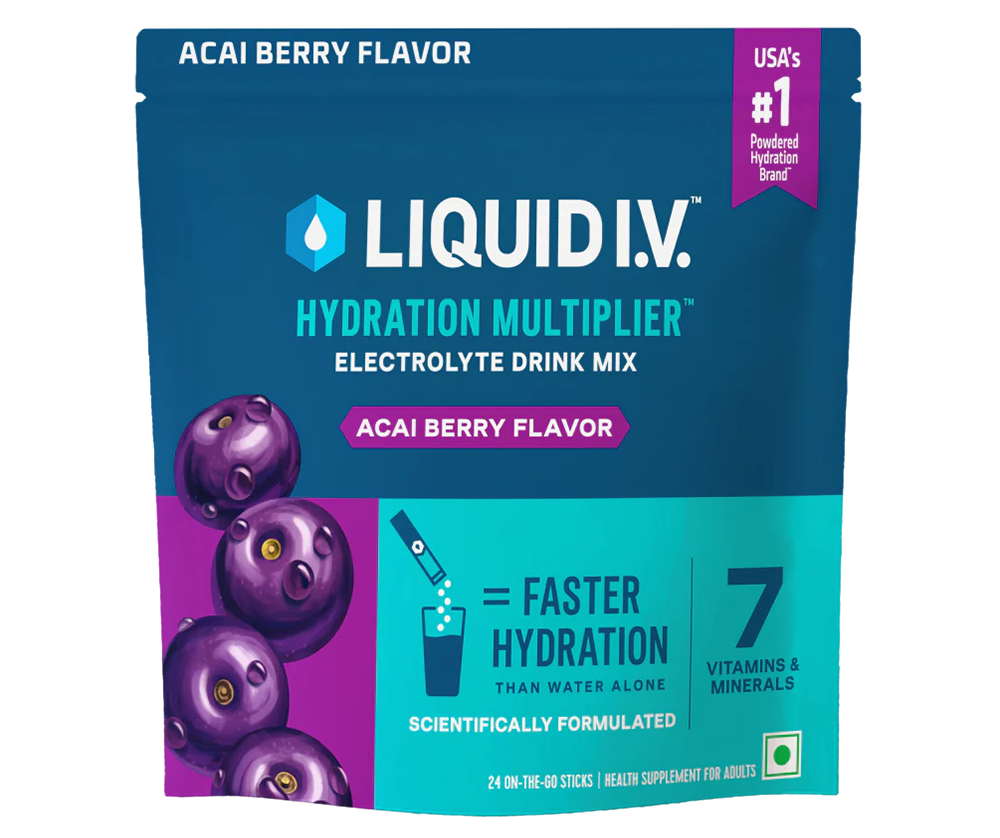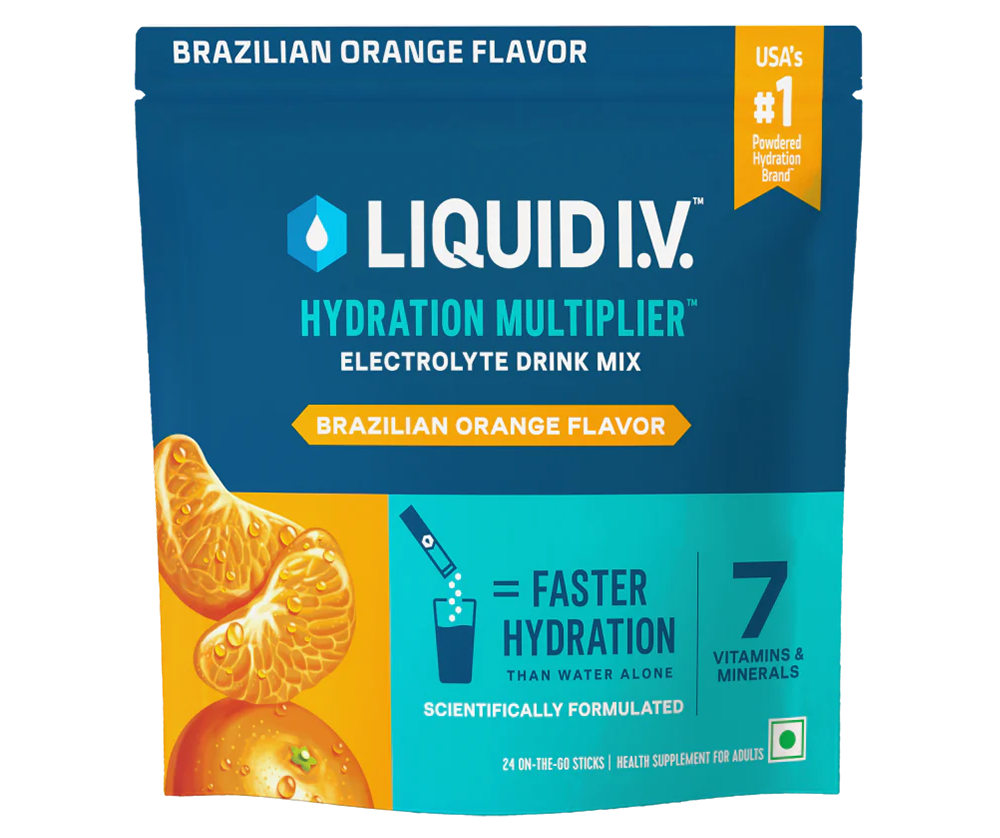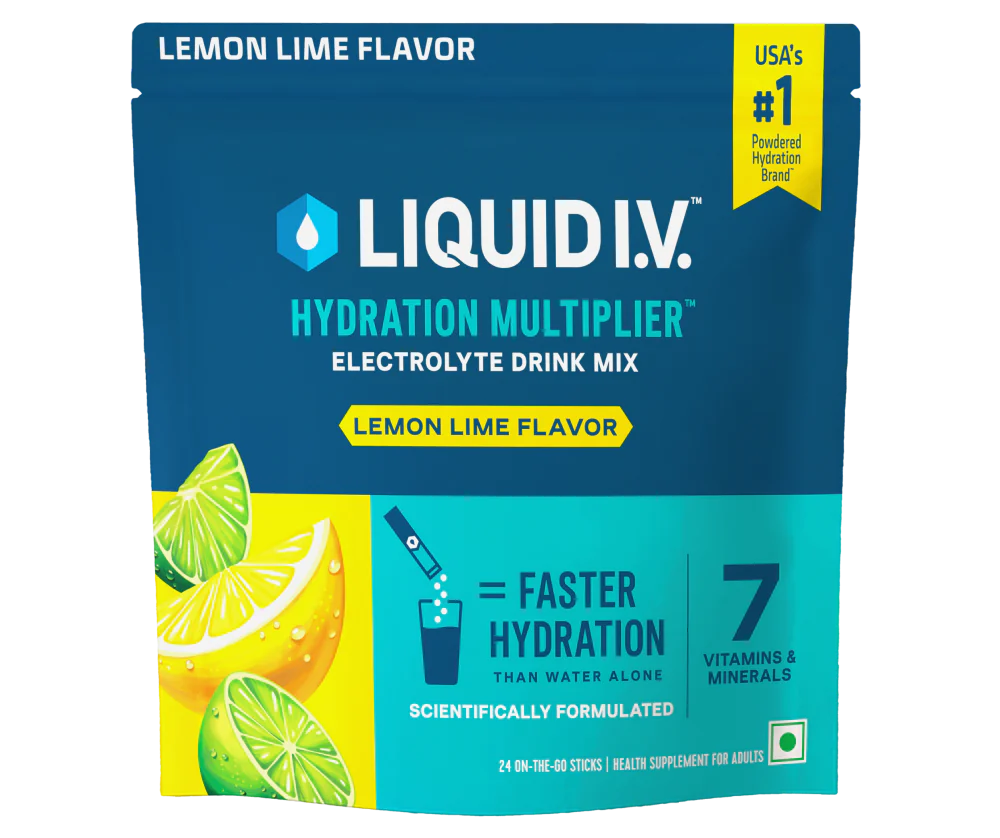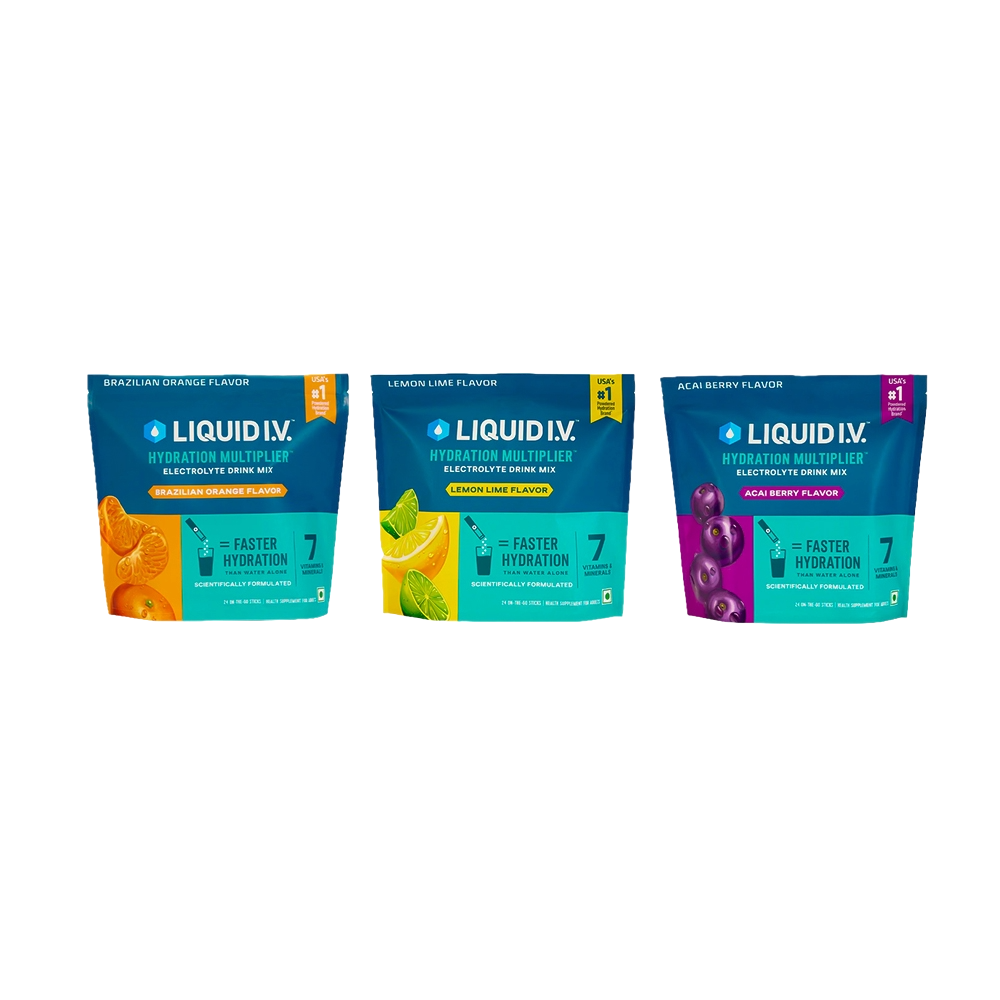Sunken Eyes and Their Dehydration Connection
Ever looked in the mirror and thought, “Why do my eyes look kinda…sunken today?” That shadowy, deep - set vibe isn’t just a random glitch - it might be your body’s way of screaming for more water. Well, it can be something more serious too, so do see your doctor if you feel higher discomfort.
But saying that, Dehydration is also one of the sneaky culprits behind tired - looking eyes. Think of your body like a high - tech hydration system - when fluid levels drop, everything from your skin to the delicate tissue around your eyes feels the effects. Less water means less plumpness, leading to those hollowed - out vibes. (1)
The fix? Stay on top of your hydration game. Your eyes (and your entire face) will thank you for it. So, let’s dive into the science behind sunken eyes and why keeping your water levels up is key to looking and feeling fresh!
What Causes Sunken Eyes?
Sunken eyes are basically your face’s way of saying, “Hey, something’s off.” It all comes down to volume loss around the eye socket - whether it’s fat, muscle, or other soft tissues thinning out. When that cushion fades, your eyeballs can look like they’re sinking back into your face, creating those shadowy, hollow vibes. (1). It can be just your face anatomy too, and if that's the case - you will probably know it.
Here’s what to look for:
- Dark shadows chilling right beneath your lower eyelid.
- A hollowed - out eye socket, making your eyes look deeper set.
- Thinner, darker skin under your eyes, thanks to blood vessels being way more visible.
- A general “I need sleep” or “Did I just age overnight?” kind of appearance.
Hydration plays a HUGE role here - your skin, especially around your eyes, thrives on moisture. (2) Keep up your water intake, and you’ll give your face a chance to feel and look fresh!
What are the Symptoms of Sunken Eyes?
Sunken eyes don’t just mess with your look - they can come with other sneaky symptoms too. The skin under your eyes might start looking thinner or a little creepy, and the area might feel less firm when you touch it. If dehydration is the culprit, you might also feel drained, dizzy, extra thirsty, or notice you’re hitting the bathroom way less. (2,3)
While the shadowed, recessed look is one of the most obvious giveaways, these extra signs can help you figure out what’s really going on. Keeping an eye on the full picture (pun intended) makes it easier to tackle the problem and get your glow back!
Causes of Sunken Eyes
Sunken eyes aren’t just a random feature - they’re your body’s way of hinting that something’s up. A few main culprits could be messing with the volume and support around your eye area.
Dramatic Weight Loss - Dropping a lot of weight fast? It’s not just about getting slimmer - your body loses fat everywhere, including the delicate pads that cushion your eyes. When that fat diminishes, your eyes can look more recessed, giving off that shadowed, hollow vibe.
Dehydration - Probably the most common reason for sunken eyes, and luckily, the easiest to fix. Your body thrives on water (you’re made of about 70% of it!), and when you’re running low, it prioritizes vital organs over things like plumping up your skin (4) . Less fluid = less volume, making the area around your eyes look deflated, kind of like a balloon that lost its air.
Sun exposure - Spending too much time in the sun without using sunscreens, can damage your skin and dehydrate you. Double trouble for tired and dehydrated eyes!
Lack of sleep - Too many late nights or too much screen time, you have a chance of getting tired looking eyes because of less sleep.
Should You Go to the Doctor if You Have Sunken Eyes?
For many, temporary sunken eyes due to mild dehydration are not concerning and can be resolved by simply rehydrating. However, if your sunken eyes are persistent and don't improve as you keep rehydrating, take a judicious call to check with a healthcare professional.
Can Sunken Eyes Cause Other Conditions?
Sunken eyes themselves are generally a symptom. They are a physical sign that something is affecting your appearance, often due to lower hydration levels or general health. (1) Addressing the underlying cause is key.
How are Sunken Eyes Treated?
Treatment for sunken eyes depends entirely on the cause. If dehydration is the culprit, the primary treatment is rehydration - drinking plenty of water and potentially consuming electrolyte - rich fluids. If you have been losing more weight than you expected or you are not seeing a change in sunken eyes after rehydration, it may be good to get medical advice.
Conclusion
Sunken eyes might just be a natural part of aging, but they can also be your body’s way of saying, “Hey, I need more water!” Dehydration is one of the major culprits, proving why staying hydrated is way important. Other factors - like sudden weight loss, too much sun or illness, can also mess with the volume and health of the tissues around your eyes, making them look hollower. So again reminding, sunken eyes can be a sign of something serious too.
The good news? Spotting sunken eyes early means you can take simple steps to bounce back - like grabbing a glass of water and making hydration a priority. If it’s a temporary thing, no stress! But if your eyes suddenly look drastically different or the problem sticks around, checking in with a doctor is smart. So next time your reflection gives you that shadowy stare, take it as a nudge to drink up and take care of yourself from the inside out!
FAQs
-
What deficiency causes sunken eyes?
The most common deficiency causing sunken eyes, especially temporarily, is low fluid volume, aka dehydration.
-
Sunken eyes vs normal eyes?
Normal eyes have a naturally supported look, sitting comfortably in the eye socket with smooth, fuller skin under the lower eyelid. Sunken eyes, on the other hand, seem to retreat into the socket, creating a shadowed or hollowed effect due to a drop in volume in the surrounding tissue. That recessed look can make a person appear more tired or worn down.
-
How to treat dehydrated eyes?
To treat sunken eyes caused by dehydration, the most effective method is rehydration. Drink plenty of water throughout the day. For more significant dehydration, consider electrolyte - rich fluids and fluid - rich fruits and veggies. Avoid dehydrating beverages like excessive caffeine and alcohol.
-
Dehydrated eyes symptoms?
Besides the appearance of sunken eyes, symptoms of dehydrated eyes can include a feeling of dryness or itchiness in the eyes, eye fatigue, redness, and in severe cases, blurry vision. These are often accompanied by other general dehydration symptoms like thirst, dry mouth, dizziness, and dark pee. (2)





